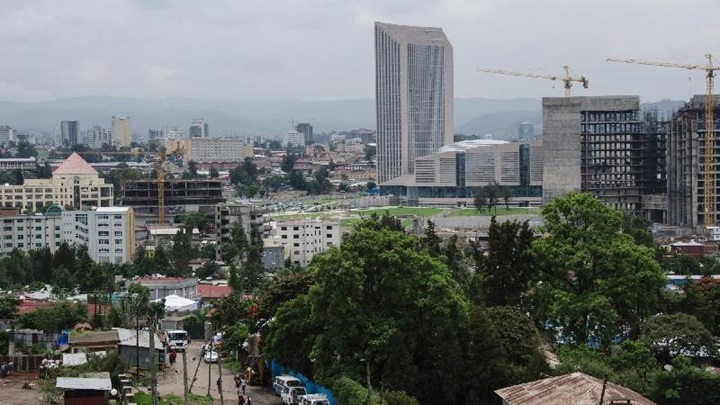TICAD9 Series (2): Research Highlights on Africa’s Economic Development
2025.06.02

(Photo:JICA/Kenshiro Imamura)
In August 2025, Japan will host the Ninth Tokyo International Conference on African Development (TICAD9). In the lead-up to the conference, we will present a series of articles showcasing our Africa-related research and initiatives. This is the second installment in the series. This article focuses on the theme of “Economy,” one of the three pillars of TICAD9, alongside “Society” and “Peace and Stability,” under the overarching vision of “Co-create innovative solutions with Africa .”
Africa, with a population estimated at 1.5 billion, is a continent of immense growth potential. At the same time, it faces structural economic challenges, such as insufficient employment opportunities for its youth and widening inequality alongside growth. We have conducted research to address these complex issues. Below are some of our key initiatives.
This joint research report, co-produced with African think tank African Center for Economic Transformation (ACET) in the lead-up to TICAD8, explores economic structural transformation in Africa. It discusses economic resilience in global and African contexts, providing insights for current and future policy formulation.
Published in conjunction with TICAD7, this book—the result of our fourth joint study with the Initiative for Policy Dialogue (IPD), led by Professor Joseph Stiglitz of Colombia University—considers a range of interrelated concerns over “the quality of growth" in Africa, including the measurement of growth, issues around equity and well-being, and the structural transformation of the economy.
Focusing on Ethiopia’s land certification program launched in 1998, this study examines how securing land tenure has influenced informal employment opportunities, time allocation between agricultural and non-agricultural activities, and internal/international migration.
Why is ethnic diversity often negatively correlated with economic growth? This project investigates the links between ethnic diversity and economic stability in Africa, using Kenya as a primary case study.
This study provides a case study of South Africa that empirically examines poverty and employment of persons with disabilities. By quantitatively showing the problems around these issues, this study aims to further increase awareness of disability issues and contribute to building a disability policy and strengthening policy implementation.
JICA has supported the dissemination of Kaizen—a Japanese approach to continuous improvement of quality and productivity—across African countries in collaboration with local institutions since 2006. This book examines how Kaizen, developed in Japan, can be effectively promoted in Africa through development cooperation by supporting the process of translative adaptation.
In partnership with the African Union Development Agency-New Partnership for Africa’s Development Policy Bridge Tank (AUDA-NEPAD PBT), the JICA Ogata Research Institute hosted a seminar to address the perception of risks and approaches to doing business in Africa, particularly by Japanese companies. The seminar presented the findings of Knowledge Report No. 7 (available in Japanese only), which discusses the five critical elements for developing business in Africa from the perspective of Corporate Social Entrepreneurship in the case of Japanese companies.
Agriculture is a vital industry in Africa, employing nearly half of the labor force. With Africa’s working-age population continuing to grow, the sector is expected to develop further, ensuring sustainable economic growth by providing opportunities for women and youth, for instance. This first article of the series introduces our research on agricultural development and food security in Africa.

事業事前評価表(地球規模課題対応国際科学技術協力(SATREPS)).国際協力機構 地球環境部 . 防災第一チーム. 1.案件名.国 名: フィリピン共和国.

事業事前評価表(地球規模課題対応国際科学技術協力(SATREPS)).国際協力機構 地球環境部 . 防災第一チーム. 1.案件名.国 名: フィリピン共和国.

事業事前評価表(地球規模課題対応国際科学技術協力(SATREPS)).国際協力機構 地球環境部 . 防災第一チーム. 1.案件名.国 名: フィリピン共和国.

事業事前評価表(地球規模課題対応国際科学技術協力(SATREPS)).国際協力機構 地球環境部 . 防災第一チーム. 1.案件名.国 名: フィリピン共和国.

事業事前評価表(地球規模課題対応国際科学技術協力(SATREPS)).国際協力機構 地球環境部 . 防災第一チーム. 1.案件名.国 名: フィリピン共和国.
scroll